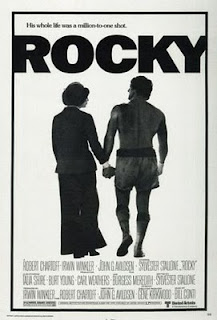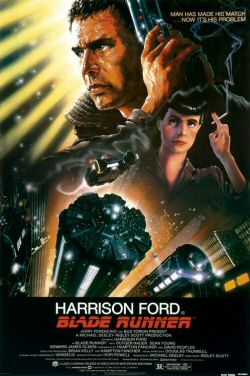I'm part of a writing group called the Nomads Literary Movement. Well, I like to add the Literary Movement bit.
We've been meeting every week for over a year now, usually in the Bell & Compass pub at Charing Cross. We take turns submitting a piece of writing so the group can critique it. Most of us are currently working on a novel.
I met most of the Nomads in the first year of my MA Creative Writing course (I'm now halfway through the second/final year). For me, the writing group is the best thing to come out of my MA so far. They're such a dedicated, insightful, and lovely bunch of people. They will keep me writing, and keep me writing well, for years to come I'm sure.
Recently, a couple of new members joined us (now we are eleven), including a guy called Felix who is also interested in screenwriting. Check out his awesome short film. He's keen to try collaborating on a screenplay so we're going to stay on next week after the Nomads session to bat some ideas about. I'll tell you how it goes!
Sunday, January 31, 2010
Wednesday, January 27, 2010
Rocky
 #210 at time of writing.
#210 at time of writing.What a great film.
Rocky Balboa is a thoroughly likeable underdog character. Poor, uneducated and ungraceful, but a real good guy. When he gets a once-in-a-lifetime wildcard opportunity to fight for the World Heavyweight Champion title, he begins a life-changing battle with his own self-doubt. A battle I - and possibly everyone - can identify with.
The small-time domestic scenes that build the story up are contrasted by the tense and unflinchingly brutal climactic fight. Sly Stallone admirably puts his all into the character. You would believe he used to be a boxer, rather than a beauty school dropout. (True!) Stallone deserves extra credit for having written the screenplay himself as a remarkably successful attempt to kick-start his acting career.
The story was inspired by a fight between Muhammad Ali and Chuck Wepner in 1975. Chuck was thought to be a no-hoper, but he defied all expectations by lasting 15 rounds against Ali - even succeeding at knocking him down at one point. Stallone saw the match, and turned it into a piece of cinema legend.
The scene with Rocky running up the steps of the Philadelphia Museum of Art was one of the first uses of a Steadicam. It's probably the second most famous steps scene in movie history after the Odessa steps in Battleship Potemkin. The steps are now known as the Rocky Steps, and feature a permanent statue of Rocky at their base.
Labels:
Battleship Potemkin,
boxing,
Chuck Wepner,
films,
movies,
Muhammad Ali,
review,
Rocky,
Sylvester Stallone
Saturday, January 23, 2010
What makes a good writer?
You are a writer whether or not anyone has read your work yet. You are a writer whether or not you have been published, or won awards, or got good reviews. There is never any badge or certificate you'll get that will say you are a writer. You just have to believe it and it's true.
If you believe it for long enough, and finish enough stuff, then you will gradually transform from being just a writer into being a good writer. The publication, awards and good reviews will follow - in direct proportion to the strength of your belief.
(If you can't bring yourself to believe you're a writer, pretend. Act as if you are and, actually, that's all it takes. Acting like a writer makes you, in fact, a writer.)
There are many different kinds of good writers. Some are popular, some are deeply insightful, some are just good for passing the time in an airport lounge.
The difference between a good writer and a bad writer is that a good writer finishes things and moves on.
If you've been working on an idea for the last five years to the exclusion of all else, or you've started ten novels but they all trailed off somewhere around chapter thirteen, then you are a bad writer. It's not about the quality of your prose, it's about what you do with it.
A good writer knows that ideas don't fail. If he's writing something that doesn't feel right, he finishes it anyway, and moves on.
A good writer has faith that more good ideas will come.
A good writer produces enough material that he's not afraid to shelve the crap.
A good writer says, "I am a writer," without qualifying the statement.
A good writer accepts praise and rejects criticism.
At least, all that's what I keep telling myself. I'm still working on being a good writer.
If you believe it for long enough, and finish enough stuff, then you will gradually transform from being just a writer into being a good writer. The publication, awards and good reviews will follow - in direct proportion to the strength of your belief.
(If you can't bring yourself to believe you're a writer, pretend. Act as if you are and, actually, that's all it takes. Acting like a writer makes you, in fact, a writer.)
There are many different kinds of good writers. Some are popular, some are deeply insightful, some are just good for passing the time in an airport lounge.
The difference between a good writer and a bad writer is that a good writer finishes things and moves on.
If you've been working on an idea for the last five years to the exclusion of all else, or you've started ten novels but they all trailed off somewhere around chapter thirteen, then you are a bad writer. It's not about the quality of your prose, it's about what you do with it.
A good writer knows that ideas don't fail. If he's writing something that doesn't feel right, he finishes it anyway, and moves on.
A good writer has faith that more good ideas will come.
A good writer produces enough material that he's not afraid to shelve the crap.
A good writer says, "I am a writer," without qualifying the statement.
A good writer accepts praise and rejects criticism.
At least, all that's what I keep telling myself. I'm still working on being a good writer.
Thursday, January 21, 2010
Alan Parker
Alan Parker, director of Evita, The Commitments and Angel Heart, watched the rough cut of The Man Who Married Himself yesterday.
He called it "Original, out there, and stunning to look at," and said it was "unexpectedly wise at the end."
He called it "Original, out there, and stunning to look at," and said it was "unexpectedly wise at the end."
Labels:
Alan Parker,
review,
The Man Who Married Himself
Sunday, January 17, 2010
Finding Time
Towards the end of last year I made an effort to reduce the amount of time I was spending on extra-curricular activities (ie anything but writing). I was running a film club, volunteering at Brixton Prison, regularly attending a go club, indoctrinating myself into the Common Purpose cult, and a bunch of other stuff. I gave all that up.
But I'm still finishing my part-time Creative Writing MA, and I still have a full-time job and a full-time wife. So when do I find time to write?
I don't.
If I was truly disciplined, I would do what they say in all the books - I would get up earlier each day and spend an hour writing before going to work. Ha! There's no getting me out of bed in the morning any earlier than I have to. Or I would dedicate Sundays to writing, forsaking all social engagements for the greater good. Nope.
The truth is that I often carve writing time out of sleeping time. I stay up until 3am on a school night four nights in a row, usually driven by a deadline.
What's worse, it takes me literally hours to squeeze out a few hundred words. My wife can spill a thousand words onto a page in an hour, and I'll still be staring at a blank page. It's a wonder I'm as productive as I am.
Should I be making an effort to develop better habits? Or is this a dirty secret that most writers have?
But I'm still finishing my part-time Creative Writing MA, and I still have a full-time job and a full-time wife. So when do I find time to write?
I don't.
If I was truly disciplined, I would do what they say in all the books - I would get up earlier each day and spend an hour writing before going to work. Ha! There's no getting me out of bed in the morning any earlier than I have to. Or I would dedicate Sundays to writing, forsaking all social engagements for the greater good. Nope.
The truth is that I often carve writing time out of sleeping time. I stay up until 3am on a school night four nights in a row, usually driven by a deadline.
What's worse, it takes me literally hours to squeeze out a few hundred words. My wife can spill a thousand words onto a page in an hour, and I'll still be staring at a blank page. It's a wonder I'm as productive as I am.
Should I be making an effort to develop better habits? Or is this a dirty secret that most writers have?
Blade Runner
 #110 at time of writing.
#110 at time of writing.Blade Runner is thirty years old if you can believe it - and it still looks fantastic. At least as good as, say, The Fifth Element. It could almost have been made yesterday.
This cyberpunk vision is the best kind of science fiction film. A rich world, layered characters, and a story that makes you stop and think.
A police assassin called Deckard is pulled out of retirement to hunt down and kill four rogue replicants - robots almost indistinguishable from humans. The ensuing story successfully explores the dehumanization of people through a society shaped by technological and capitalist excess, the roles of creator and creation, personal identity and self-awareness and other such complex issues.
The sets are wonderfully detailed. Amusingly, some of the buildings in the meticulously built model city are pieces of spaceships from earlier science fiction films, including a model of the Millennium Falcon from Star Wars, a model of the Dark Star, and piece of the spaceship from Close Encounters of the Third Kind.
There are a bewildering number of versions of the film, to the point where I'm not even sure which one(s) I've seen. The original print was thought lost until it was rediscovered in 1989 by sound preservationist Michael Arick while he was hunting through the Warner Bros attic for footage from Gypsy. It was one of the first ever films to be re-released in a "Director's Cut", in 1992. And there are five other versions too.
This is easily the best Philip K Dick adaptation, although Total Recall will always hold a special place in my heart (omigod it's being remade!).
Wednesday, January 13, 2010
Money
I've never yet earned money from screenwriting. That's what my day job is for.
Surprisingly, there are standard rates of pay for screenwriters, courtesy of the Writers' Guild of Great Britain. I didn't even know there was a Writers' Guild of Great Britain.
It seems I can expect to receive at least £2700 for writing the treatment, at least £9450 for a first draft script, and at least £3240 for a second (or fourteenth) draft.
(For interest, compare the Writers Guild of America rates - almost double on average.)
Surprisingly, there are standard rates of pay for screenwriters, courtesy of the Writers' Guild of Great Britain. I didn't even know there was a Writers' Guild of Great Britain.
It seems I can expect to receive at least £2700 for writing the treatment, at least £9450 for a first draft script, and at least £3240 for a second (or fourteenth) draft.
(For interest, compare the Writers Guild of America rates - almost double on average.)
Saturday, January 09, 2010
Backstory
I am in the process of writing a feature-length screenplay. How did I come to be writing a film script?
The short answer is Garrick Hamm.
The long answer? Where do I start...
All my life, I've been writing short stories.
In about 2005 I discovered Terry Rossio's Wordplay, a series of columns on how to write successful screenplays. I was so inspired that I wrote a feature-length script - about an entrepreneurial student trying to get into a morally ambiguous secret fraternity. The script was, shall we say, deeply flawed.
Over the next few years, I started getting more and more emails from people asking permission to adapt my short stories into short films. Occasionally, these people wanted me to collaborate, but I always felt too busy to say yes.
Then in late 2008 I started a Masters degree in Creative Writing, and chose Screenwriting as my optional module. I wrote a 30-page script - and this time it was damn good.
I replied to one of the keen amateurs who had emailed me looking for a collaboration, and we got to work making the script into a short film. But, as is the way with so many such projects, it stalled and fell into the eternal limbo.
None of the above has anything to do with Garrick Hamm.
He emailed me in Feb 2009. He'd just finished producing a short called Lucky Numbers, which was touring the festivals, and he was looking for a story for his next short. He picked one of my stories to adapt: The Man Who Married Himself. I volunteered to collaborate.
By May, we had a first draft. It must have been good, because by June, Garrick had persuaded Richard E Grant to star. By October we were up to version 14 of the script. By November filming was wrapped.
The short is still having the final touches applied. Soon it will be launched and start touring the festivals. At best, it'll win lots of awards, at worst it'll raise a lot of smiles on filmgoers' faces.
The short answer is Garrick Hamm.
The long answer? Where do I start...
All my life, I've been writing short stories.
In about 2005 I discovered Terry Rossio's Wordplay, a series of columns on how to write successful screenplays. I was so inspired that I wrote a feature-length script - about an entrepreneurial student trying to get into a morally ambiguous secret fraternity. The script was, shall we say, deeply flawed.
Over the next few years, I started getting more and more emails from people asking permission to adapt my short stories into short films. Occasionally, these people wanted me to collaborate, but I always felt too busy to say yes.
Then in late 2008 I started a Masters degree in Creative Writing, and chose Screenwriting as my optional module. I wrote a 30-page script - and this time it was damn good.
I replied to one of the keen amateurs who had emailed me looking for a collaboration, and we got to work making the script into a short film. But, as is the way with so many such projects, it stalled and fell into the eternal limbo.
None of the above has anything to do with Garrick Hamm.
He emailed me in Feb 2009. He'd just finished producing a short called Lucky Numbers, which was touring the festivals, and he was looking for a story for his next short. He picked one of my stories to adapt: The Man Who Married Himself. I volunteered to collaborate.
By May, we had a first draft. It must have been good, because by June, Garrick had persuaded Richard E Grant to star. By October we were up to version 14 of the script. By November filming was wrapped.
The short is still having the final touches applied. Soon it will be launched and start touring the festivals. At best, it'll win lots of awards, at worst it'll raise a lot of smiles on filmgoers' faces.
Subscribe to:
Comments (Atom)



